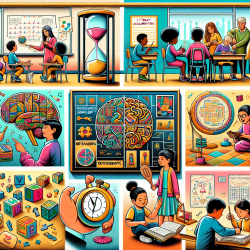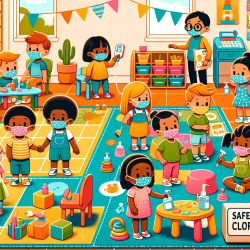Introduction
Burnout among school social workers is an increasingly common concern, particularly as demands on educational professionals continue to rise. With the advent of virtual therapy, there's a promising avenue for providing much-needed support to both students and social workers alike. In this blog, we'll explore how online therapy services, like those offered by TinyEYE, can alleviate the pressures on school social workers, ultimately enhancing outcomes for kids in need of mental health support.
The Reality of Burnout
Burnout is more than just feeling stressed; it’s a state of emotional, physical, and mental exhaustion caused by prolonged and excessive stress. For school social workers, the pressures of managing large caseloads, limited resources, and the emotional toll of supporting children in distress can lead to significant burnout. This not only affects their well-being but also impacts their ability to effectively support the kids who rely on them.
Virtual Therapy: A New Horizon
Virtual therapy, or teletherapy, is a modern solution that provides a flexible and accessible means of delivering therapeutic services. It allows social workers to connect with children in a way that is convenient and effective, without the logistical challenges of traditional in-person therapy. This mode of therapy has been shown to be just as effective as face-to-face sessions, offering a viable alternative that can help alleviate some of the burdens faced by school social workers.
Benefits of Virtual Therapy for School Social Workers
- Flexibility and Accessibility: Virtual therapy offers the flexibility to schedule sessions at times that are most convenient for both the social worker and the student, reducing scheduling conflicts and travel time.
- Resource Optimization: With online platforms, social workers can reach more students without the constraints of physical space, making it easier to manage larger caseloads efficiently.
- Enhanced Engagement: Many children find digital interactions more engaging, which can lead to more productive therapy sessions.
- Continuity of Care: Virtual therapy ensures that children continue to receive support even during disruptions like school closures or personal circumstances that prevent in-person meetings.
Taking the Next Step
For school social workers feeling the weight of burnout, integrating virtual therapy into their practice can be a transformative step. By leveraging the capabilities of online therapy services, such as those provided by TinyEYE, social workers can better manage their workloads, improve their own well-being, and enhance the support they offer to children.
Conclusion
Burnout doesn't have to be an inevitable part of a school social worker's career. By embracing virtual therapy, you can create a more sustainable and effective practice that benefits both you and the children you serve. As the landscape of therapy continues to evolve, now is the time to explore how online services can be integrated into your work, ensuring that you and your students thrive.










